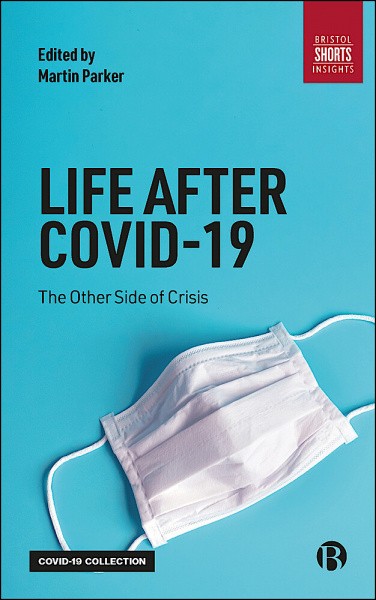Life After Covid-19: The other side of the crisis ed Martin Parker (Bristol University Press, £7.99)
Reconstruction of the global economy after its disruption by Covid-19 has been running for nearly as long as the pandemic itself – with alarm at the prospect of a global depression balanced by optimism at the chance to build a fairer system from the floorboards up.
But there are is also inertia in the system – and powerful vested interests – which would favour a return to the status quo. In his introduction to this collection – “a series of provocations” – Martin Parker warns that “rebuilding after this crisis must involve challenging pretty much everything that we know and do”.

Simply allowing the economy to bounce back would only work “if we let the 1% keep what they already have, and stay in the realms of fantasy for the 99%” and would see the recovery shaped by the global infrastructure that people have built. Fatally, it would see the continuation of rising carbon emissions.
So how should we go about creating an alternative powerful enough to effect meaningful change?
The ideas of co-operation have already manifested themselves in the response to Covid-19. Activist and researcher Neil Howard, from the University of Bath, notes the rise of mutual aid in communities under lockdown and highlights the growing calls for people’s assemblies to work towards “a new social contract” – which echoes the moves to build a grassroots democracy seen in the new municipalise of Cleveland and Preston. He calls for a “a movement of movements” and there must surely be a place for the co-op movement in that pluralism.
One element to that is the union co-op hybrid – discussed here in a chapter from Alex Bird, Pat Conaty, Anita Mangan, Mick McKeown, Cilla Ross and Simon Taylor. This is “a fully unionised worker co-operative, owned and controlled by those who own and work in it”; Co-op News has already covered the model which has been put into practice in US cities including Cincinnati and Cleveland. The writers here argue it offers a route out of in-work poverty for the global precariat stuck in the gig economy.
Related: Unions and co-ops – a new way forward for workers?
The model builds on the seven co-op principles with three others adapted from the Mondragon federation of worker co-ops in Spain. These are: subsidiarity of capital to labour; solidarity and fairness; and commitment to union co-op development – and are important, the writers argue, because they enshrine workers’ rights and fair pay in the governance of the union co-op.
Creating enough of these businesses to change the system is easier said than done but the writers identify several methods: converting existing businesses through worker buyout; rescuing failing businesses; converting existing co-ops to the union co-op model. This could even include converting consumer co-ops to a multi stakeholder model with workers taking at least 51% of voting shares. There is also scope to convert social enterprises or charities – or to create brand new union co-ops from scratch. And the growing ranks of the self-employed could be organised into union co-ops.
And there are already successful examples – for instance, the writers point to the Drive Taxi Co-op, set up recently in Cardiff with support from the GMB union and the Wales Co-operative Centre.
The rest of this collection deals with subjects such as the decline of cash, the rise of artificial intelligence, the food system and the future of cities; all areas that impact on the activities of co-ops – and where co-ops can help the move to more sustainable practices. And the essays advocate a number of solutions where the co-op movement is already active – such as community food kitchens, community wealth building and the development of the social economy.

